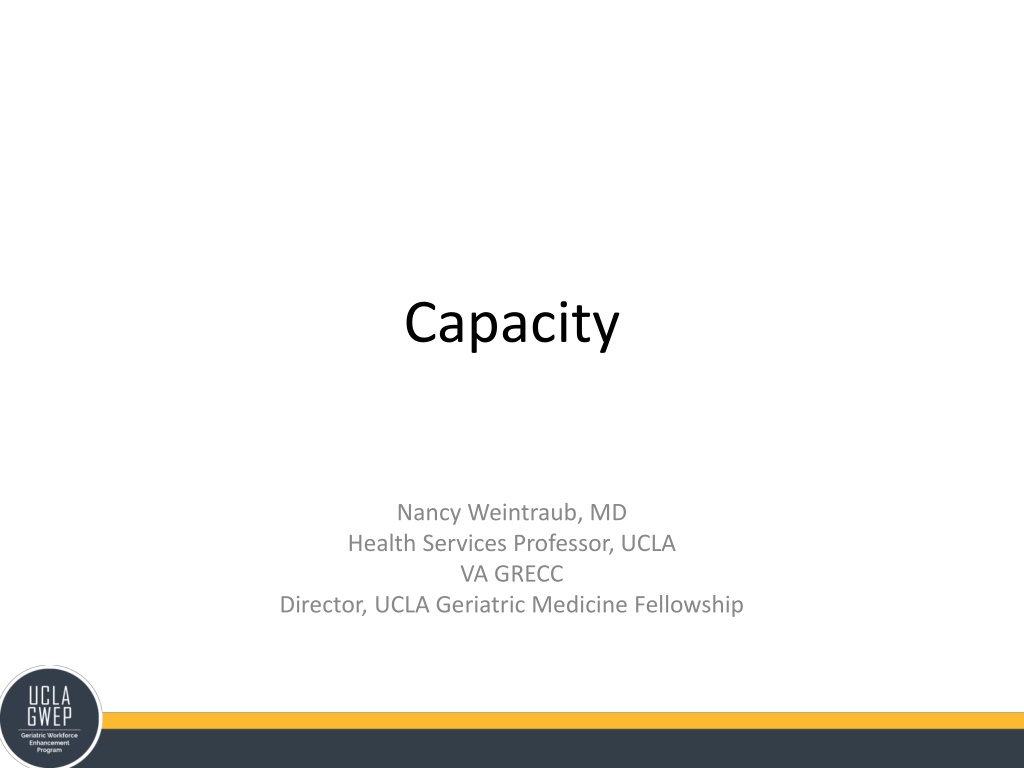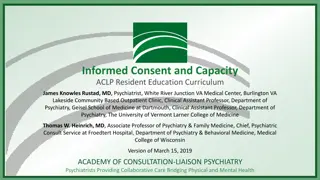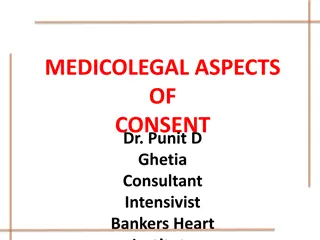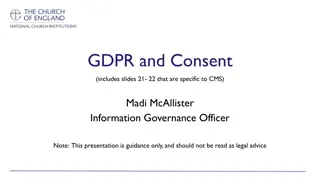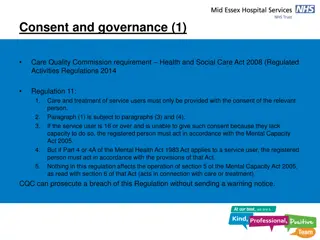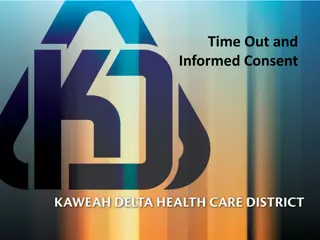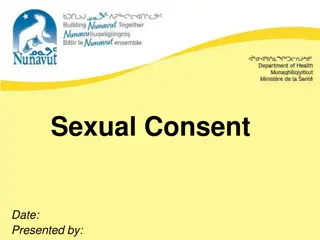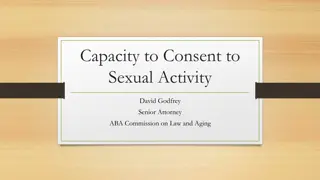Understanding Capacity and Consent in Medical Decision-Making
Exploring the concepts of capacity and competence in medical decision-making, this content delves into the legal implications and distinctions between the two terms. It discusses the importance of a physician's role in assessing capacity, as well as the ability to consent based on communication and understanding of proposed treatments in healthcare settings.
Download Presentation

Please find below an Image/Link to download the presentation.
The content on the website is provided AS IS for your information and personal use only. It may not be sold, licensed, or shared on other websites without obtaining consent from the author. Download presentation by click this link. If you encounter any issues during the download, it is possible that the publisher has removed the file from their server.
E N D
Presentation Transcript
Capacity Nancy Weintraub, MD Health Services Professor, UCLA VA GRECC Director, UCLA Geriatric Medicine Fellowship
DISCLOSURES None of the faculty, planners, speakers, providers nor CME committee has any relevant financial relationships with commercial interest There is no commercial support for this CME activity
Case 84 year old woman w/ DM and HTN in ED CC: abdominal pain worsening over past few days, now severe PMH: OA, Hearing Loss, Macular Degeneration PSH: TAH due to fibroids many years ago Meds: glipizide, metformin, lisinopril, HCTZ, acetaminophen
SH: Lives with husband for whom she is the care-giver after his CVA; retired teacher; 2 daughters in the area; no tobacco or alcohol ADLs independent IADLs: Does not drive (never did) Manages all medications Manages finances Does the cooking Daughters help with shopping and cleaning
Pertinent PE Vitals: BP 110/60, HR 120, T 100.4 Pt moaning in pain, calling for her daughter Lungs clear Cor RRR S4S1S2 w/ 2/6 sys m Abd: BS absent, + guarding Neuro: moving all 4 extremities
Labs H/H 11/33, WBC 17.5 w/ L shift, plts 280 K Na 145, K 3.2, Cl 105, CO2 20, AG 20 Glu 300, BUN 45, Cr 1.3, LFTs nl EKG: sinus tach CT abd: free air and stranding around L descending colon
CONSENT (oh no)
Capacity vs. Competence
Competence and incompetence are legal terms, implying actions of a court of law. Capacity is specific to the medical decision at hand, decision made by a physician
Capacity to Consent Ability to communicate Ability to understand the proposed treatment and alternative interventions Ability to appreciate the consequences of accepting or declining the suggested treatment Ability to explain the rationale for their choice
The Saga Continues. You explain. She says: I don t understand you. I don t know . Talk to my daughter.
Capacity to Consent Ability to communicate Ability to understand the proposed treatment and alternative interventions Ability to appreciate the consequences of accepting or declining the suggested treatment Ability to explain the rationale for their choice
Is the patient delirious? How do we find out?
CAMS 1. Acute change in mental status and fluctuating course 2. Inattention 3. Disorganized thinking 4. Altered level of consciousness Requires features 1 and 2 and either 3 or 4
1. Acute change in mental status and fluctuating course Do we have that? How do we find out?
2. Inattention Do we have that? How do we find out?
Short mental status testing Conversation
3. Disorganized thinking 4. Altered level of consciousness Observation and conversation
Back to the patient. You try to assess her mental status and discover that she cannot hear you. Now what?
Capacity to Consent Ability to communicate Ability to understand the proposed treatment and alternative interventions Ability to appreciate the consequences of accepting or declining the suggested treatment Ability to explain the rationale for their choice
